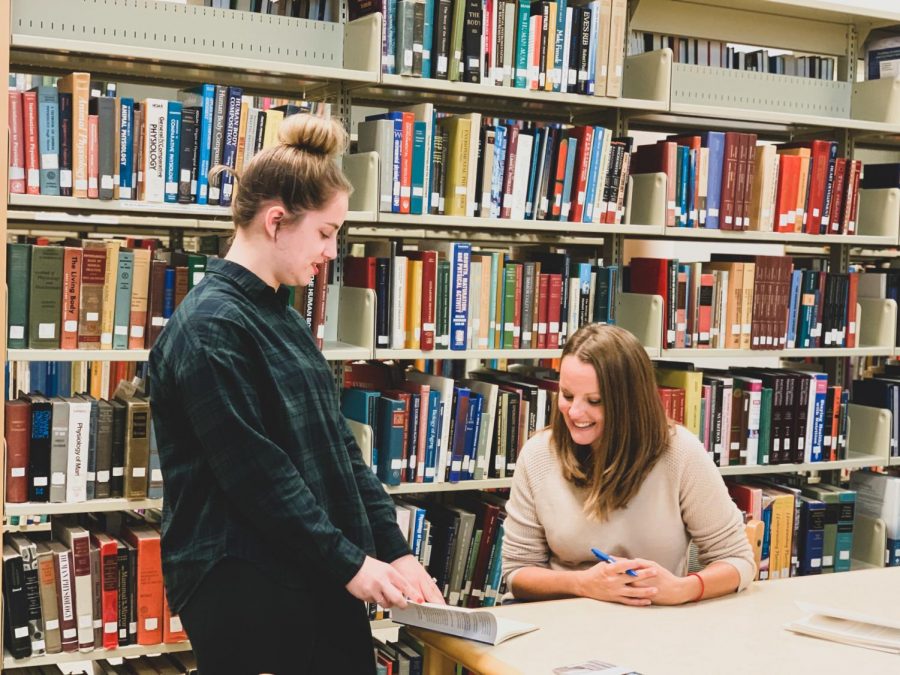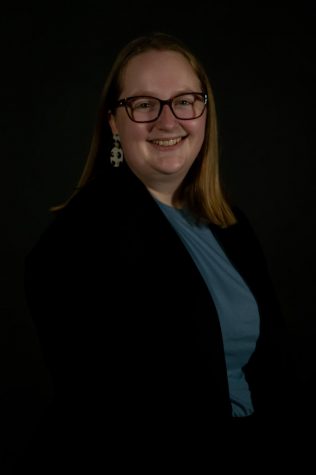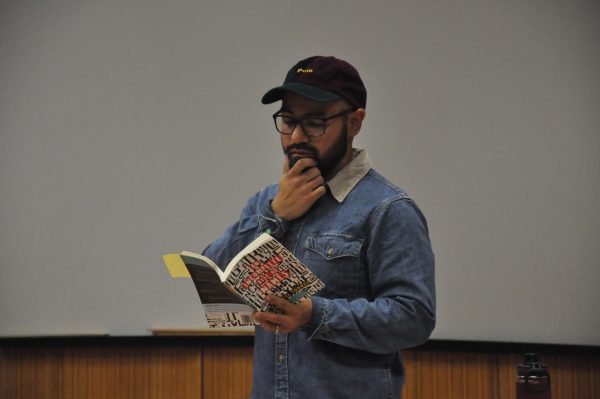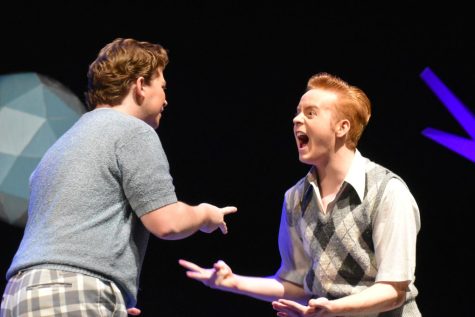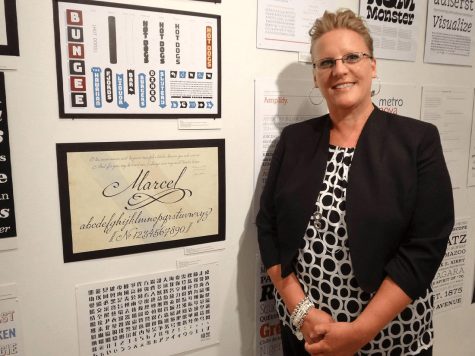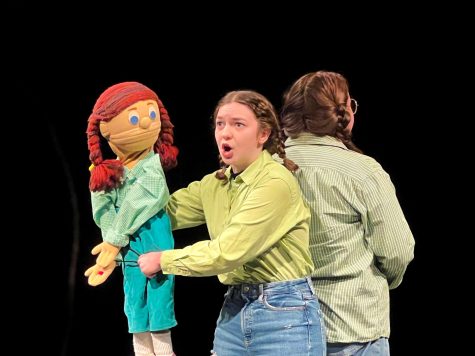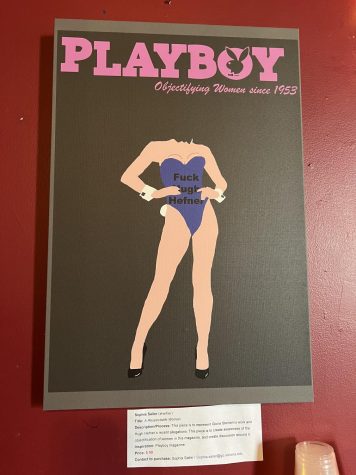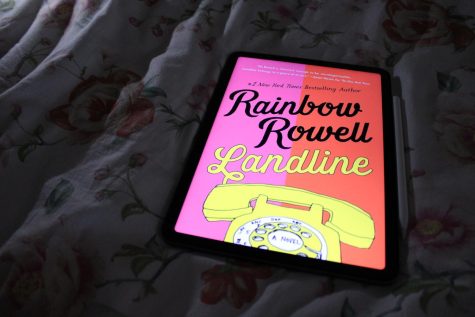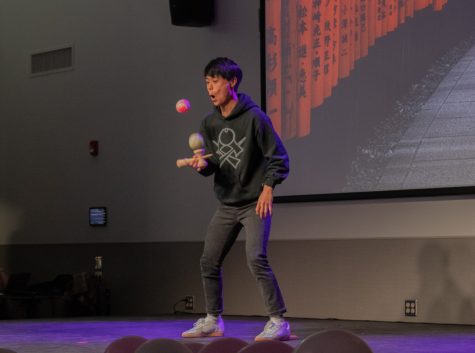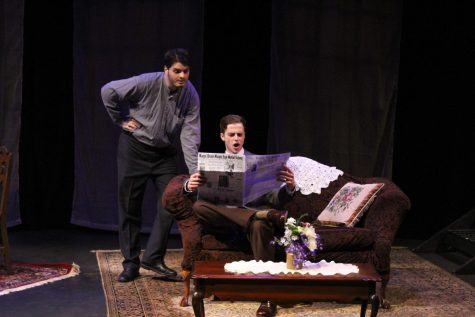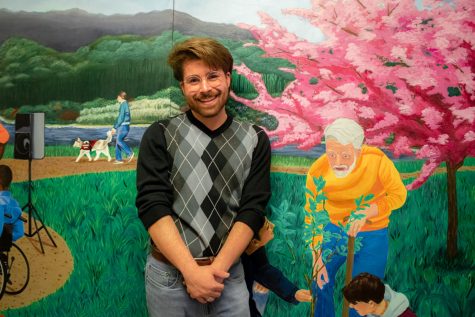Great Reading River Series brings poet to campus
Crystal Spring Gibbins signs her book “Now/Here” during a meet and greet with students after finishing a reading session at the Darrell W. Krueger Library on Thursday, Oct. 3.
October 9, 2019
Crystal Spring Gibbins presented poems from her most recent book “Now/Here” on Thursday, Oct. 3 as part of the John S. Lucas Great Reading River Series.
Gibbins presented in Professor James Armstrong’s poetry writing class, as well as a public reading in the library’s Athenaeum space.
Her presentation for Armstrong’s class left her feeling energized and ready for her larger presentation.
“Students [in Armstrong’s class] had really good questions. They also wrote poems that imitated ones from my book,” Gibbins said.
She said she experienced a tinge of nervousness when she thought about the reading series, but she was excited to share more poems.
“It’s all about gauging the audience and picking which poems to read to see how well it will be received,” Gibbins said.
She began her reading with an autobiographical poem titled “1997: Baudette, MN”, which she described as a list of things that happened to her during that year.
She went into a poem titled “Blizzards 1996-1997” that she said was inspired by Patricia Smith’s hurricane poem from her book “Blood Dazzler”.
Gibbins then looped back to a poem that she wrote for Armstrong’s advanced poetry writing class called “Touring the Natural History Museum.”
While she has spent many years writing poetry, geology was her initial focus. She was required to take a writing course that was more expository-based writing during her undergraduate years. That class, according to Gibbins, changed her whole career outlook.
“Writers and poets play an important, meaningful role in considering and determining the ways we shape the world and create awareness,” Gibbins said.
Her inspiration is drawn from her love of the outdoors and nostalgia-filled places, as well as environmental issues and current events. Writing poetry for Gibbins is about personal reflections and a cathartic way to find her purpose in the world.
Although choosing a favorite piece of work can be challenging for any writer, Gibbins said that the poem “Driving North” was one she her audiences could connect with the most. The poem is about Gibbins’ drives home that give her time to recharge and find solace.
Megan Martin attended the reading from Elizabeth Oness’s creative writing class and enjoyed Gibbins’ themes of environmental awareness and nostalgia.
“I feel grounded in nature, and her poems helped with my appreciation for it.” Martin said.
She connected with Gibbins’ ideas that coming home after having time for personal growth allows people to miss where they’re from.
As for Jacelyn Schley, a junior in Armstrong’s poetry class, she found Gibbins’ reading to be helpful for her own work.
“Writing poems that were inspired by Gibbins was helpful because she’s established as a poet and she’s modern,” Schley said.
The next speaker from the John S. Lucas Great Reading River series will be Professor Laura Jean Baker Oct. 21.























































